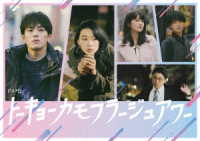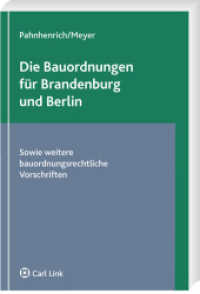- ホーム
- > 洋書
- > 英文書
- > Religion / Ethics
Full Description
A cultural history of the relationship between music and trance in America, from the early colonial era to the Jazz Age.
Counterpoints of Ecstasy provides an engaging exploration of the relationship between music and self-transcendent experiences in America from the 1620s to the 1920s. It investigates how diverse Americans—from Puritan settlers to vaudeville entertainers—used music to find meaning in ecstasy, trance, and other mystical experiences that drastically altered their senses of subjectivity. These moments of profound transformation unfolded in settings as diverse as revival tents, concert halls, parlors, and movie theaters. The book introduces four distinct modes of self-transcendent experience—supernatural, natural, internal, and equivocal—demonstrating how various interpretations of ecstasy evolved out of and alongside each other. Blending historical analysis with cultural theory, the book integrates traditional narratives of disenchantment and re-enchantment, offering a richly textured account of music's power to dissolve boundaries and foster connection. A vital contribution to the histories of religion, spirituality, music, and American culture, Counterpoints of Ecstasy invites readers to reconsider the profound, sometimes paradoxical, role that music played in the quest for meaning beyond the self.
Contents
List of Illustrations
Acknowledgments
Introduction
1. The Spiritualization of Self-Transcendence
2. The Naturalization of Numen
3. The Syncretization of Spirit Possession
4. The Internalization of Enthusiasm
5. The Carnivalization of Consciousness
6. The Industrialization of Ecstasy
Conclusion
Notes
Bibliography
Index








